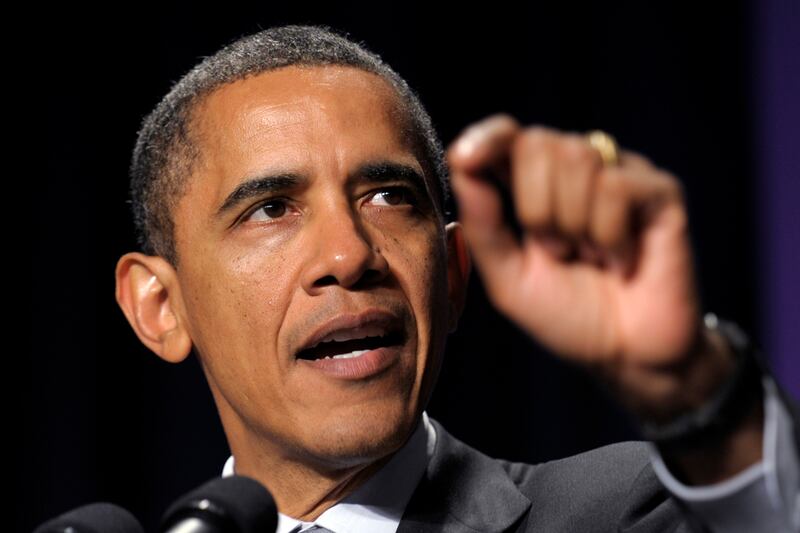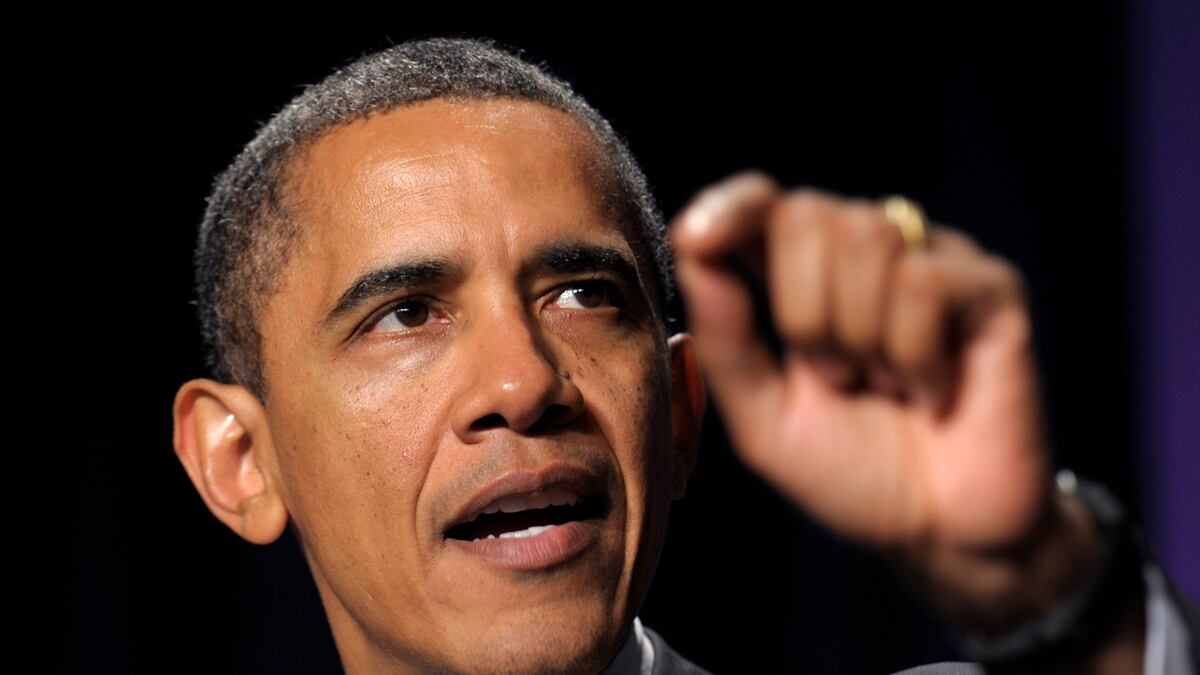Should the United States follow the dramatic examples of Italy and Greece and deal with a looming fiscal crisis by installing a national unity government?
The response to such changes in two of Europe’s most deeply troubled economies has been encouraging for the most part—boosting markets and confidence at home and around the world. The resignation of prime ministers Silvio Berlusconi in Italy and George Papandreou in Greece, and their replacement with drab academic economists with no discernable partisan agenda, seems to be what the fix-it doctors ordered for nations with staggering debt levels and seemingly insoluble deficit problems.
In terms of fiscal dysfunction, is the U.S. really that far behind the European basket cases?
Although overall government-debt levels as a percentage of gross domestic product remain somewhat lower in America than in the most desperate European nations, our projected deficit for 2011 (above 9 percent of GDP) is higher than in Italy (below 5 percent) or even Greece (8.5 percent). And unlike Italy or Greece—or Spain, Ireland, Portugal, or the state of California, for that matter—no economy or agency on earth could or would help bail us out if we reached the point of crash, crush, or default.
The deadline for the congressional supercommittee to find a minimum of $1.2 trillion in deficit reduction as a holiday gift for Thanksgiving amounts to a ticking bomb, with few figures in Washington making credible attempts to defuse it. While the president continues his demagogic pleas for a feeble jobs bill that has no chance of passage and Republicans endlessly obsess over 15-year-old harassment allegations against Herman Cain or Rick Perry’s pathetic brain freezes, a potential budgetary breakdown could produce devastating losses in markets, jobs, confidence, security, and purchasing power for every family.

In this context, the American people would welcome a bold new push to put aside partisanship and electioneering, at least temporarily, and deal with the crisis at hand.
Although our system of government may not allow for a “no confidence” vote in the style of parliamentary republics or the replacement of the Obama administration with a fresh “government of national unity,” the president could nonetheless shift course to break the current deadlock.
With a few high-profile appointments, he could pledge a fresh start and claim to empower a new “crisis team,” “emergency coalition,” or even a national unity government. Replacing Treasury Secretary Tim Geithner, one of the least popular members of the current administration, with a Republican with broad support and an honorable private-sector background might instantly reassure corporate leaders and the public that the administration would give up its business-bashing ways to concentrate on the spending cuts and revenue enhancements needed to avoid catastrophe.
Imagine the electrifying impact were Obama to welcome a savvy, well-respected conservative like Steve Forbes into his cabinet, and to offer daily meetings with GOP leaders to craft the compromises necessary to resolve the latest budget crisis with long-term reforms. Another plausible addition to the administration would be retired New Hampshire senator Judd Gregg, a prior Obama choice for commerce secretary who turned down that post because of doubts about the president’s huge and clumsily designed stimulus package. Taking Gregg into the cabinet now would signal to the world that the administration had finally given up the notion that the United States government can spend and borrow its way to prosperity.
Another name that would indicate sober, constructive, reformist intent on the part of the White House would be that of David Walker, who previously served 10 years, under both the Clinton and Bush administrations, as comptroller general, heading the Government Accountability Office. An independent, nonpartisan figure and a fierce budget hawk, Walker could assume a new position such as “balanced-budget czar” (what’s one more czar in an administration already crawling with them?) empowered to cut a broad swath across the bureaucracy to put the nation’s fiscal house in order.
Republicans might remain wary of such moves by a beleaguered president less than a year before facing reelection, but 40 GOP House members have already signed a commitment to support revenue increases as part of a grand budget bargain, so the president could well attract sufficient support for some significant progress.
Moreover, by adding leading figures of the opposition party—or, in Walker’s case, a universally admired technocrat from the nonaligned center—to his struggling administration, Obama could honor the example of one of his historical heroes.
In the summer of 1940, with war raging in Europe and facing a tough, third-term reelection campaign at home, Franklin Roosevelt turned to two of the nation’s most prominent Republicans to make the point that politics stopped at the water’s edge. He selected Herbert Hoover’s secretary of state, Henry L. Stimson, as the new secretary of war, and the vice-presidential nominee on the prior GOP ticket, Frank Knox, as secretary of the Navy, hoping to unify the country in preparation for the inevitable entry into the world war. Facing a moment of international economic crisis, Obama could similarly broaden the base of his administration to confront the painful changes in entitlements, taxes, and discretionary spending that must occur to avoid disaster.
If the president continues to shun such daring steps and to separate himself from the crucial work of the supercommittee barely two weeks before its doomsday deadline, what does it indicate about his long-term purposes?
The cynical assumption suggests that Obama and his top advisers have reached the gloomy conclusion that nothing they can do or say would rescue the faltering global economy or promote meaningful job creation before he faces the voters in November 2012. With little chance of buoying his prospects with financial recovery, the president concentrates on branding Republicans as fanatical and destructive, suggesting that they want to deny women pap smears and breast exams or seek a poisonous increase of air and water pollution in order to blame them for the onrushing disaster that now appears inevitable.
The positive worldwide response to starkly different developments in troubled European economies—world leaders and international business interests welcoming a less politicized, numbers-crunching approach by pragmatic, nonideological new leadership—highlights a better alternative for the Obama administration. Such an approach would either force grudging cooperation from the opposition party or embarrass the GOP before a deeply disillusioned public. Ironically, the president could best enhance the possibility of recovery and lift his own political prospects by embracing a strategy long promoted by his fellow progressives: on this occasion at least, it makes sense to follow Europe’s more enlightened example.






